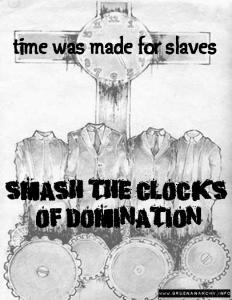We Used to Wait (almost a suite in itself) functions as a companion piece to Deep Blue, dealing with similar themes of technology in recent decades. But while that song focused more on the actual technology itself, this track considers the side-effects of said technology’s now-omnipresence.
The song begins with a lone piano pounding away in A-minor, soon joined by Butler’s croon and sparse percussion; with the fourth line the mix adds an electronically pulsing organ:
I used to write, I used to write letters, I used to sign my name.
I used to sleep at night, before the flashing lights settled deep in my brain
But by the time we met, the times had already changed (some really funky effects here)
So I never wrote a letter, I never took my true heart, I never wrote it down
So when the lights cut out I was lost standing in the wilderness downtown…
Win is singing here on two levels: on the surface, yes, it’s about how he no longer writes letters. But go a level deeper—and it’s a bit more sinister—and it’s a commentary on the sped-up pace of today’s world. If Arcade Fire’s songs are any indication, our media-oversaturated broadband culture is creating a generation of emotionally-numb insomniacs.
In that last line, why have the lights cut out? Is this a repetition of the violent wind/solar flare motif from Month of May? Did someone cut the lights (as Reginé pleads in Sprawl II)?
For that matter, what is ‘the wilderness downtown’ (besides an exceptional media experience we’ll look at later)? Is this perhaps sometime after, and we’re speaking of a literal, re-wilded city, the end result of the Wilderness Downtown video?:

Or is it a comment on the fact that in Our society, our educational system churns out graduates without the knowledge necessary for true survival (because in Our Culture, being able to survive amounts to being an obedient worker so you can collect green pieces of paper to exchange for rent and locked-up food) in the uncivilized Wild?
Now our lives are changing fast
Hope that something pure can last
Seems pretty self-explanatory.
Don’t it seem strange, how we used to wait for letters to arrive?
But what’s stranger still is how something so small can keep you alive
Indeed. I’ve been there, spending a summer waiting for a postcard from a distant like-minded lady-friend. And when those letters arrive, man, there’s the whole experience of it: opening the envelope, getting a waft of perfume, unfolding the pages, reading, the whisper of paper as you turn the pages, aahhhh… It’s the same with CDs; I’m not a vinyl snob in terms of sound (“but LPs sound so warm!” they all tell me), but I do like the ritual: admiring the square foot of album art, sliding the album out of the sleeves, putting it on the turntable, lowering the needle, and that sound as the needle drops. Ugh, there’s no permanence to electronic forms of books, music, correspondence—it’s just electrons zipping around; cut the power and it’s gone.
We used to wait, we used to waste hours just walking around
We used to wait, all those wasted lives in the wilderness downtown
There are those adolescent ‘wasted hours’ again. I’m still not sure what the wilderness he speaks of here is, because I’m really drawing a blank on all the wasted lives there. Some have suggested that the wasted lives are the corporate Suits, going to their soul-crushing cubicle jobs because they pay the bills, but being ultimately miserable and unfulfilled because they’re not “[writing] a letter to [their] true love”. Or as Eugene Hutz puts it: “zombies and willful slaves, living in their tiny private caves/crooked hands, digging up their graves”:
I’m gonna write a letter to my true love, I’m gonna sign my name
Like a patient on a table I wanna walk again, gonna move through the pain
There’s a lotta talk on this album about moving past feelings and moving through pain. Huh.
We used to wait for it, now we’re screaming “Sing the chorus again”
I used to wait for it, Now I’m screaming “Sing the chorus again”
Wait for it!
Win now applies the immediate-gratification aspect of digital culture to his own circle of the music industry. I remember growing up, you’d hear a song on the radio, and you didn’t know when you’d hear it again; sometimes it felt like you could go years without hearing a particular song, and then one day there it was, outta the blue, and man, it just made your day. With a simple switch in pronoun, Butler admits that he’s not immune to this technological convenience either, but he doesn’t have to like it—remember, this is from the same guy who “don’t want it faster, don’t want it free”. In the end, the listener is urged to cultivate patience, and wait for it!



